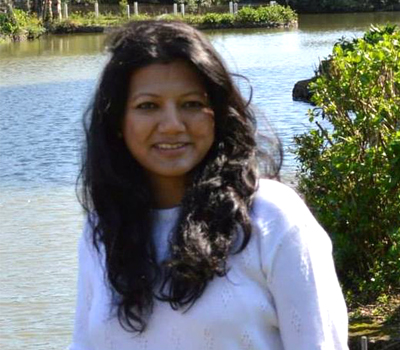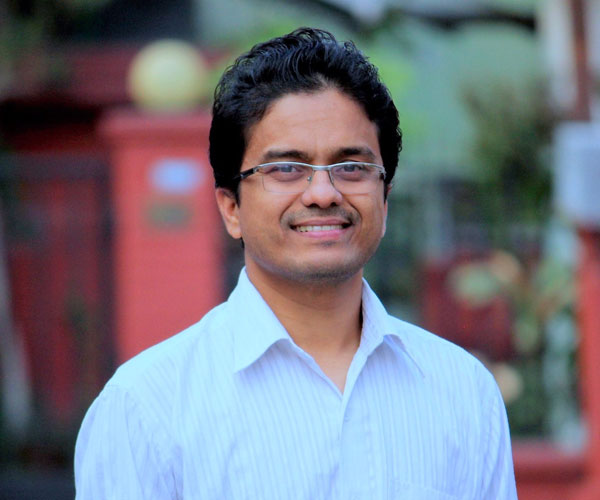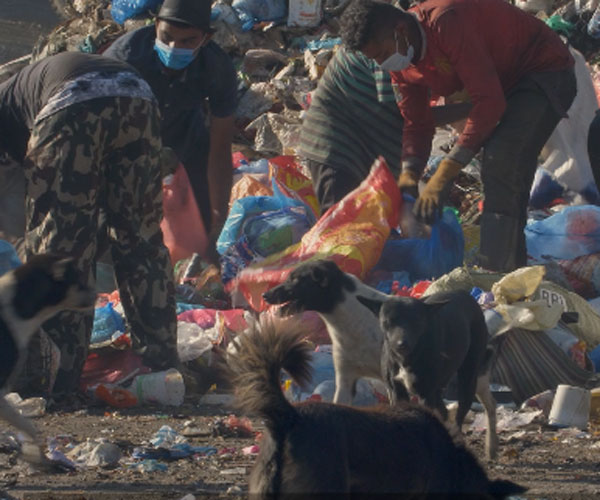
Despite a slight drop in carbon dioxide (CO2) emissions due to the 2020 COVID pandemic, greenhouse gases emissions are still above the warning level, calling for a mandatory 45 per cent global reduction in the next 10 years.
Recently, the Academy commissioned Shanta Nepali, a filmmaker from Nepal, to produce a film about the impact two Nepalese scientists are having on their communities through TWAS grants. The film, titled “TWAS - Empowering scientific research in Nepal”, is an impressive accomplishment in two ways. It avoided needless CO2 emissions by recruiting a local professional and showcased the impactful results achieved by two TWAS research grantees from a least developed country, who received support from TWAS and its historical partner, the Swedish International Development Cooperation Agency (Sida). The film can be viewed here. 
"With funding provided by Sida, the TWAS Research Grants Programme has been sustaining scientists in developing countries for three decades now, since 1991, when the partnership began", explained TWAS Programme Coordinator Max Paoli. "Thanks to this short film, we can get a fascinating glimpse into the impact of the grants on the work of scientists in a least developed country such as Nepal".
Nepal is a vulnerable country that currently can afford to invest as little as 0.3 per cent of its gross domestic product in research. As a consequence, it may serve as a testing ground for scientific breakthroughs, especially if they are user-friendly and relatively inexpensive.
The film focuses on two TWAS grantees who devised innovative solutions to common medical and food problems: Deena Shrestha, a microbiologist at the Centre for Health and Disease Studies of Nepal, and Basant Giri, a chemist at the Kathmandu Institute of Applied Sciences. The film shows how the grant impacted their career, allowing them to develop new ideas and products. The grant was also key to training young talented scientists, who work with the two TWAS grantees and are still making names for themselves in their respective fields.
"TWAS has helped me to obtain national and international visibility and recognition. Because of this grant, I was able to develop important national and international collaborations like the one with the Liverpool School of Tropical Medicine," said Shrestha, whose studies focus on bacterial resistance to antibiotics.
Shrestha received a TWAS grant to investigate a problem called multidrug resistance (MDR) that affects many hospitals worldwide. MDR causes bacteria to resist most antibiotics, and cannot be eliminated from human hosts or animals; her research showed that several Nepalese hospitals are not taking the issue seriously.
Shrestha is currently trying to spot the presence of resistant bacteria in waste workers, and raising awareness among Nepalese communities and schools. Through her grant, she is also nurturing a dynamic group of young scientists who work with her and learn scientific thinking.
TWAS awardee Basant Giri received one individual grant in 2015, and another one as a group leader in 2019. The first grant changed his career by giving him the chance to establish his own laboratory and exposing him to the international scientific community. As a consequence, he received other grants. Today, he leads a group of more than 15 scientists, including postdoctoral and Master of Science students, research associates and assistants.
"The ultimate goal of any researcher and any scientist is to solve problems in his or her community. But by solving the problems of our Nepali community we also solve the problems of other communities in other countries, because some of the problems are common", he said.
Giri's research focuses on several projects. One investigation addresses food and water contamination by parasites like Giardia lamblia, with the ultimate goal of setting up unconventional and inexpensive analytical tools based on mobile phones. Another project examined the filtering performance of low-cost locally available cloth masks, which are used to protect from particulate matter that is believed to be responsible for various health problems such as lung inflammation and lung cancer, myocardial infarction, and worsening of existing conditions like asthma.
His results now inform the guidelines of the World Health Organization. Giri's future goal is the development of another analytical system to monitor the quality of those prescription drugs in Nepal whose ingredients do not meet the internationally established quality standards.
Choosing a young Nepalese female filmmaker for this project is in line with TWAS commitment to empowering women and reducing carbon emissions by reducing travel. Shanta Nepali is an experienced professional familiar with the local culture and language.
"This TWAS film was a new experience for me, as it portrays science and scientists", said Nepali. "I had to study and learn how science works so, in part, it was challenging, but also a very rich experience. I never realized how much Nepali scientists have worked and achieved".
As a woman filmmaker, she has to face competition in the male-dominated film industry, which she tackles by hiring female collaborators with the aim of building an inclusive workplace and give opportunities to other female filmmakers.
The TWAS Research Grants Programme began in 1986 and now is one of TWAS most influential and successful. Sida's relationship with TWAS started in 1991. Since then, the Swedish agency has emerged as an essential supporter of the Academy's work.
TWAS and Sida jointly focus their programmes on aiding scientists, especially from LDCs. Sida is a Stockholm-based agency working on behalf of the Swedish Parliament and Government, which helps LDCs to reach independence through programmes for development.
Cristina Serra

